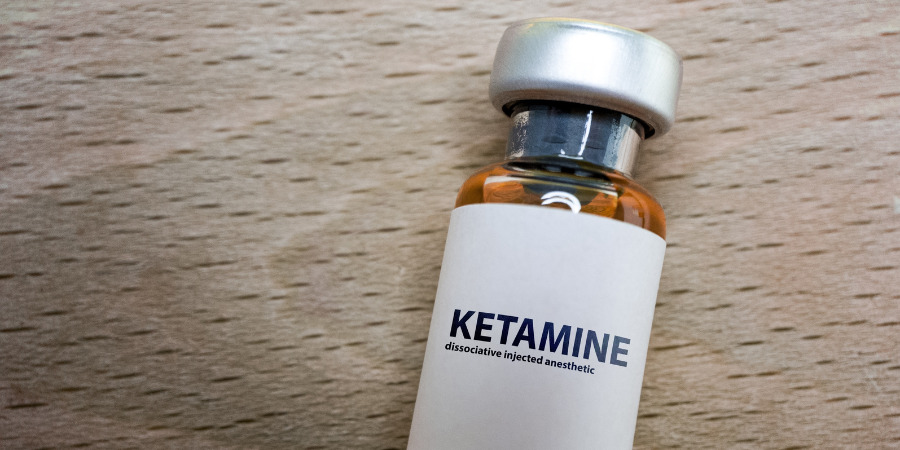
Written by:

Medically Reviewed by:
Last Updated:
February 14th, 2025
Ketamine Rehab
What is ketamine rehab?
Ketamine rehab is a structured programme designed to help individuals break free from their dependence on ketamine in a safe, supportive environment. It involves addressing both the physical and psychological aspects of addiction through medically monitored detox, therapy and aftercare.
Ketamine rehab provides a chance to explore underlying reasons for ketamine use, whether it was to enhance parties or cope with personal challenges. With professional help, individuals can rebuild their lives, learn healthier ways to cope and rediscover a sense of purpose.
The aim is to empower individuals to achieve lasting recovery and prevent relapse.
Do addictions to ketamine require rehab
Ketamine addiction is complex, as the drug does not cause a typical physical withdrawal syndrome. However, some people find themselves struggling with intense cravings and psychological dependence. These feelings can make it incredibly difficult to stop using ketamine without professional help. Over time, recreational use often shifts into a cycle where the drug feels necessary to cope with life’s demands or to avoid emotional discomfort.
Rehab is invaluable in breaking this cycle. It offers a controlled and supportive environment where you can address the root causes of your ketamine use and develop strategies to prevent relapse. Importantly, it’s a chance to understand why you started using ketamine in the first place, giving you the tools to move forward with confidence and clarity.
Do I need ketamine rehab?
It’s natural to feel sceptical about whether rehab is necessary, especially if ketamine use is tied to enhancing social experiences or escaping daily stress. However, addiction can quietly make people feel as though they need ketamine to feel normal.
If you’ve been using ketamine frequently, it’s worth reflecting on your relationship with the drug. Answer the six questions below honestly to check in on yourself. Responding with ‘yes’ to any of these could indicate a need for professional help.
- Do you feel like you can’t enjoy social events without ketamine?
- Have you experienced cravings or preoccupation with getting more ketamine?
- Do you find yourself needing more ketamine to achieve the same effects?
- Have you neglected responsibilities or hobbies because of ketamine use?
- Do you use ketamine to cope with stress, anxiety or other emotions?
- Have loved ones expressed concern about your ketamine use?
What happens in a ketamine rehab programme?
Many people worry about what rehab involves, often fearing it will feel like punishment or confinement. The truth is far from this. At Liberty House, we understand these misconceptions and aim to create a personalised, compassionate experience that feels supportive rather than intimidating.
Since rehab is deeply personal, most people don’t share the details of their journey, making it harder to know what to expect. Below, we’ll walk you through the main stages of our ketamine rehab programme to help alleviate any fears.
Initial assessment
The process begins with an initial assessment, where we work with you to understand your unique needs, medical history and goals. This step allows our team to design a tailored treatment plan that fits your circumstances. You’ll have the chance to discuss any concerns and feel reassured that the programme is built around your recovery journey.
Detox
Detox is the process of clearing ketamine from your system while managing any cravings or physical discomfort. Liberty House’s detox is medically supervised, ensuring your safety and comfort at every step. Since ketamine doesn’t typically cause severe physical withdrawal symptoms, our focus is on helping you manage cravings and navigate any psychological challenges that arise during this stage.
Therapy
Therapy forms the heart of the rehab experience. Through individual and group sessions, you’ll explore the reasons behind your ketamine use and develop healthier coping mechanisms. We’ll address any underlying mental health issues, such as anxiety or body dysmorphia, that may be contributing to your dependence.
Aftercare
Recovery doesn’t stop when rehab ends. Our aftercare services are designed to provide ongoing support as you transition back into daily life. This includes relapse prevention planning, access to support groups and regular check-ins to ensure you stay on track with your goals.
A closer look at therapy in ketamine rehab
At Liberty House, we believe that treating both the mind and body is essential for overcoming ketamine addiction. Therapy plays a vital role in this process, helping you understand the patterns behind your behaviour and empowering you to make lasting changes. Below are some of the therapies we use and how they support recovery.
Cognitive behavioural therapy (CBT)
CBT focuses on identifying and changing negative thought patterns that drive addictive behaviours. For ketamine addiction, it’s particularly effective in addressing the triggers that lead to use, such as stress or social pressure. By reframing these thoughts, you’ll gain tools to avoid relapse and build healthier habits.
Dialectical behaviour therapy (DBT)
DBT is designed to help individuals manage intense emotions and improve interpersonal relationships. If ketamine use has been a way to escape overwhelming feelings, DBT can teach you how to cope with these emotions constructively. It’s also helpful in addressing any co-occurring mental health issues.
Group therapy
In group therapy, you’ll connect with others who are on similar ketamine addiction recovery journeys, sharing experiences and building a sense of community. Hearing how others are coping can provide inspiration and support, while group discussions help you feel less isolated in your struggles.
One-to-one therapy
These private sessions allow you to dive deeper into personal issues that you may not feel comfortable sharing in a group setting. Whether it’s unresolved trauma, relationship difficulties or self-esteem challenges, one-to-one therapy provides a safe space to explore and heal.
Holistic therapies
Holistic approaches like art therapy, yoga and meditation help you reconnect with your body and mind. Art therapy offers a creative outlet for expressing emotions, while yoga and meditation promote relaxation and mindfulness. These practices are invaluable for reducing stress and rebuilding a sense of inner peace, which is crucial for sustaining recovery from ketamine addiction.
Reach out for help
If you or someone you care about is struggling with ketamine addiction, we encourage you to take the first step today. At Liberty House, we’re here to provide the support, care and guidance you need to rebuild your life. Reach out to us and start your journey to recovery.
Frequently Asked Questions
(Click here to see works cited)
- Beerten SG, Matheï C, Aertgeerts B. Ketamine misuse: an update for primary care. Br J Gen Pract. 2023 Jan 26;73(727):87-89. doi: 10.3399/bjgp23X731997. PMID: 36702586; PMCID: PMC9888585.






